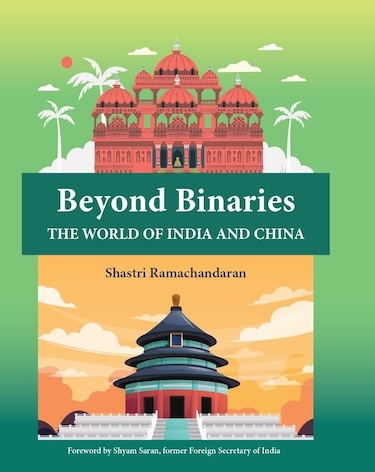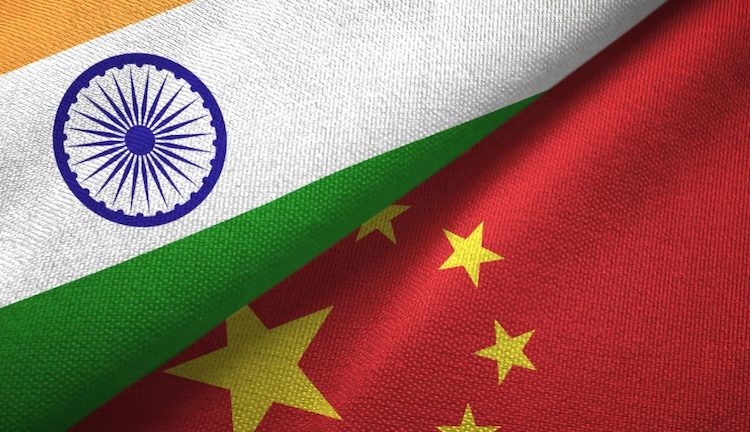By Sanjaya Baru*
Shastri Ramachandaran’s “Beyond Binaries: The World of India and China (2008-2022)”, published by Genuine Publications & Media Pvt. Ltd., 1 January 2024, is a reminder for Indian media organisations to look abroad. This review was pubished by The Wire.
NEW DELHI | 22 July 2024 (IDN) — Foreign correspondents have always been an important source of information on life in distant lands. In an earlier era, when the scope of communication and travel was limited to a privileged few, access to knowledge of foreign lands remained restricted to books written for a limited readership. John Gunther’s famous Inside series introduced many societies to his readers. The popular media then became an important window into other societies.
Regrettably for Indians the miserliness of Indian publishers meant that few media organisations had posted foreign correspondents. Even those that did, only posted them in a few select capitals, such as Washington DC, London, and a handful of neighboring countries. Few among them wrote interesting books about life in their host country. While several books on China have been published over the past decade most of them focus on bilateral relations, geopolitics, geo-economics and so on.
Pallavi Aiyer’s book on life in contemporary China, Smoke and Mirrors: An Experience of China (2008) is a refreshing glimpse into a rapidly rising and globalising Asian nation. One should, therefore, thank journalist Shastri Ramachandaran for offering one more ‘worm’s eye view’ account of China in his recently published Beyond Binaries: The World of India and China.
A “balanced perspective”
Many distinguished diplomats and scholars including former foreign secretary Shyam Saran, two former ambassadors to China, Nirupama Rao and Ashok Kantha and two eminent China scholars, Manoranjan Mohanty and Patricia Oberoi have all welcomed Ramachandaran’s book because, as most of them say, it offers a ‘balanced’ perspective. It is a sign of the times that even getting a ‘balanced perspective’ on one’s subject matter elicits praise.
Indeed, for an Indian journalist to write a book that draws attention to not just China’s negative attributes but also to its positive attributes is a heroic act. Ramachandaran is no greenhorn hack. He has been a respected journalist, with postings overseas, for several decades. When we were colleagues in The Times of India I was on a holiday in Kathmandu and could not but pay attention to an animated discussion on a breakfast table next to mine, with four Nepali gentlemen discussing a column written by Ramachandaran. His book on China deserves attention.
Ramachandaran has had a unique opportunity of working in a Chinese media organisation. He was senior consultant and editor of China-India Dialogue, and senior editor and writer with China Daily and Global Times. Based on his work-life experiences Ramachandaran is able to convincingly draw attention to the hidden plurality of views within an ostensibly monolithic society. In carrying out his professional duties Ramachandaran pushes the envelope, as his wont, and the boundaries of the freedom available to him in expressing his thoughts as a foreigner writing in Chinese media. He is not always successful but on one occasion he is told, to his surprise, that he could have been bolder in being critical.

There are several simple and bare truths about China that often are required to be repeated by an Indian to an Indian audience. The first is about the plurality of opinion within China, even if that remains within bounds. After all, even in India today we take great pride in pushing the boundaries of our freedom criticising democratic despots. Second, the fact that India does not occupy as much mind space of the Chinese, and their media, as China does in our domestic discourse. Third, and most importantly, there is much to learn from China.
Reporting on the last is the most important task of an Indian journalist and researcher, given the Western media’s tendency to focus on the negative aspects. Even if we consider China an ‘enemy’, a ‘threat’ or a ‘challenge’, it is important that we have an informed view of both its strengths and weaknesses. Ramachandaran makes a good attempt at providing that balanced perspective. This book deserves to be widely read.
Normal reactions to China in India are either ‘awe’ or ‘contempt’. As a rapidly rising power China is bound to assert itself. We in India must be prepared to deal with any assertion that hurts our interests and security. Our approach should be based on an objective assessment of her capabilities, mindful of her core security interests. At the same time, China’s rise is also an opportunity. China is not just a military power but is also a knowledge power. While being prepared to deal with its military capability, we must seek to draw on its scientific and technological capabilities.
While the official Indian view remains ‘Neighbourhood First’, we remain confused about what this means. Indeed, we are not even clear what our ‘neighbourhood’ is. Is it South Asia, South-east Asia, West Asia, Indian Ocean Region? Or all of the above? Neighbourhood is determined by geography and economics, not politics. China is a neighbour. Indian media must invest in understanding the neighbourhood.
Tailpiece: Almost three decades ago the editor of a major Indian newspaper asked me if I would be willing to go to Beijing as a foreign correspondent. I said Yes. He informed me that Prime Minister I.K. Gujral had encouraged him to post a correspondent in China. Would I be interested? I grabbed the invitation and over lunch the next day we agreed on the terms. Sadly, his media organisation did the math and said they could not afford to post someone full time in China. It is this miserliness of Indian big media that continues to deprive us of an Indian view of the world, and of our neighbourhood. Since Indian media will not invest in qualified overseas correspondents they end up using retired diplomats as their window to the world. [IDN-InDepthNews]
*Sanjaya Baru is an economist, a former newspaper editor, a best-selling author, and former adviser to Prime Minister Manmohan Singh.
Original link: https://thewire.in/books/why-media-organisations-need-to-appoint-more-foreign-correspondents
Image: Flags of India and China. Source: Observer Research Foundation.


